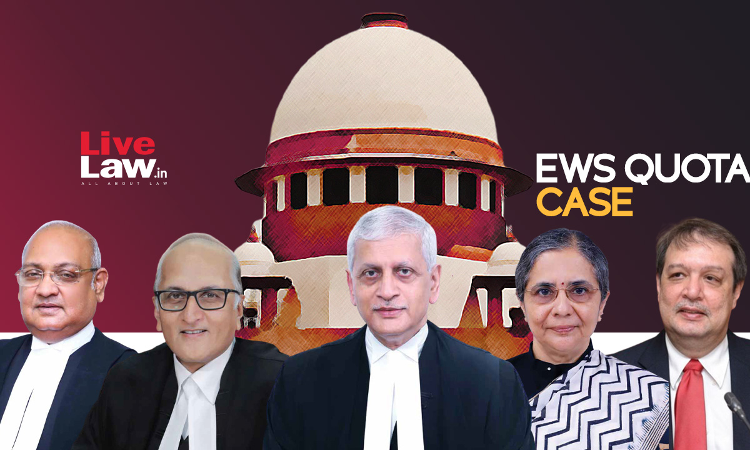- Home
- /
- Top Stories
- /
- Supreme Court Upholds EWS Quota By...
Supreme Court Upholds EWS Quota By 3:2 Majority; CJI Lalit & Justice Bhat In Minority
Padmakshi Sharma
7 Nov 2022 11:04 AM IST
The Supreme Court Constitution Bench has by 3:2 majority upheld the validity of the 103rd Constitutional Amendment which introduced 10% reservation for Economically Weaker Sections (EWS) in education and public employment.While Justices Dinesh Maheshwari, Bela Trivedi and JB Pardiwala upheld the 103rd Constitution Amendment, Justice S Ravindra Bhat wrote a dissenting judgment to strike it...
Tags
EWS QuotaEWS ReservationConstitution 103rd AmendmentSupreme CourtJanhit Abhiyan vs Union Of India | 2022 LiveLaw (SC) 922CJI UU Lalit#Justice S Ravindra BhatJustice Dinesh Maheshwari#Justice Bela M. TrivediJanhit Abhiyan vs Union Of India | 2022 LiveLaw (SC) 922CJI UU Lalit#Justice S Ravindra BhatJustice Dinesh Maheshwari#Justice Bela M. Trivedi#Justice JB Pardiwala
Next Story



